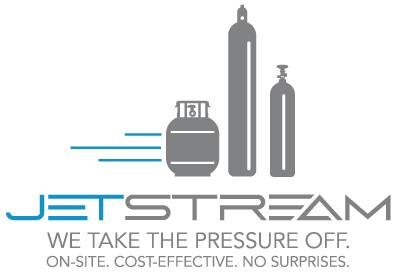 It’s no secret that compressed gas cylinders can be dangerous. Not only are they often filled with hazardous substances, but they compress those substances at really high pressure levels. Since they are so dangerous there are special procedures needed to complete gas cylinder recycling. Most of the time you can’t just drop off your cylinders at the local scrap yard because they won’t take them. If you stockpile old cylinders you could be hit with fines from OSHA or the EPA and you are risking the lives of your employees. Is that really something that you want to deal with?
It’s no secret that compressed gas cylinders can be dangerous. Not only are they often filled with hazardous substances, but they compress those substances at really high pressure levels. Since they are so dangerous there are special procedures needed to complete gas cylinder recycling. Most of the time you can’t just drop off your cylinders at the local scrap yard because they won’t take them. If you stockpile old cylinders you could be hit with fines from OSHA or the EPA and you are risking the lives of your employees. Is that really something that you want to deal with?The Safety Fines
Compressed gas cylinders can be very dangerous when they aren’t stored properly, and because of this OSHA usually will assess violations involving compressed gasses as serious. That means that each of the violations ends up costing between $1,500 and $7,000 as long as it is a first time offense. Repeated offenses can cost a company even more money.
On Dec 28 in 2011 the Huntington Ingalls shipyard was hit with a very serious set of penalties amounting to $176,000 in all. Among their 50 different safety violations many of them were due to improperly handling, labeling, and storing their compressed gas cylinders. OSHA is always looking into these matters, and they penalize very heavily in situations where workers are put in danger because gas cylinders aren’t handled and stored properly.
The Environmental Fines
Even if you manage to escape expensive OSHA fines with your compressed gas cylinders you could still have the EPA knocking at your door. They look closely to see if cylinders are being disposed of properly. Cylinders with harmful gases are considered hazardous waste when you get rid of them, and if you don’t follow all the right procedures you can be fined or even charged with a felony.
In 2005 the EPA fined three shipping agents and a warehouse owner in Samoa to cover a bill for $140,623 to cover their costs for disposing of ammonia and Freon gas cylinders that were stored in Lauli’I Village in Honolulu. They tried to leave the tanks behind, but got stuck with the bill in the end anyway. They would have spent a lot less if they paid experts to handle the gas cylinder recycling project.
Risking Your Employees
Compressed gas cylinders pose two different health risks to your employees when handled improperly. If the cylinder is ever punctured it can act as a missile and physically injure someone because of the high pressure levels inside. A cylinder containing a hazardous gas can cause explosions, fires, or even poisoning if the gas is released in an unsafe manner. The Blue Rhino explosion in Florida is a perfect example of how things can go wrong when gas cylinder recycling procedures aren’t followed properly. One second the surrounding area was still and quiet and an instant later propane tanks were raining down from the sky to the background thundering of explosion after explosion.
The facility lit up as a 20 by 20 foot fireball rocketed into the sky and nearly 200 feet of flames engulfed a large portion of the area. Fortunately nobody was killed in the accident but 8 different people were injured.
The explosion occurred near the propane storage area, where tanks were stored in questionable conditions at best. The company had to deal with massive amounts of damage to their facility, fines from OSHA, and some of their employees being seriously injured.
Going through the proper steps for gas cylinder recycling is almost always more affordable than trying to cut corners and getting hit with a penalty. If you have compressed cylinders that you would like to recycle get in touch with professionals who know what they are doing.
Contact us for a FREE consultation and estimate on compressed gas cylinder cleanup and disposal that will reduce your risk and improve your bottom line.

